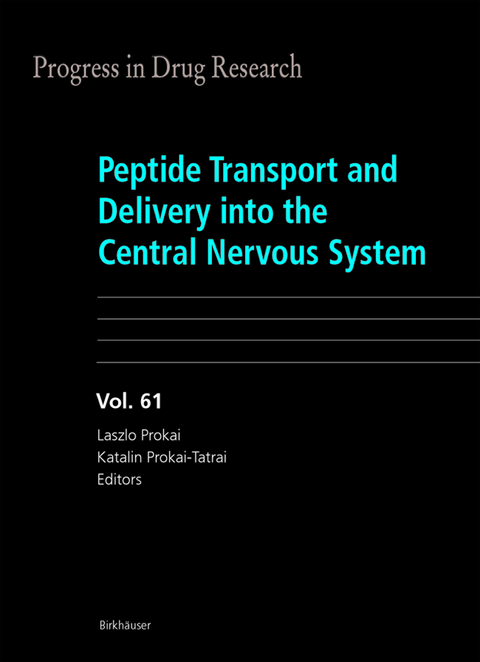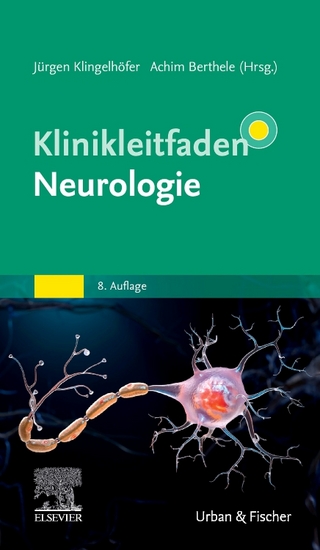
Peptide Transport and Delivery into the Central Nervous System
Springer Basel (Verlag)
978-3-0348-9420-3 (ISBN)
Hypo- or hypersecretion, alteration in storage, release, catabolism, and post-translational processing of neuropeptides are associated with the etiology of many diseases affecting the central nervous system (CNS). Various peptides native to the brain and the spinal cord, as well as various synthetic peptides, peptide analogues and peptidomimetics developed as their agonists or antagonists could be useful in the treatment of these CNS maladies. However, peptides face a formidable obstacle in reaching the intended site of action due to the existence of the blood-brain barrier (BBB), a vital element in the regulation of the internal environment of the brain and the spinal cord. After reviews on the role and neuropharmaceutical potential of peptides, properties of the BBB in the context of peptide transport in the CNS and potential transport mechanisms to cross the BBB, this volume discusses the development, present state-of-the-art and future trends of various strategies to overcome this major obstacle to peptide pharmacotherapy involving the CNS. Chapters are devoted to cover invasive approaches that circumvent the BBB by direct administration into the brain or the spinal cord and by transiently opening the tight junctions of or permeabilizing the endothelial cells separating the systemic circulation from the interstitial fluid of the CNS. Subsequently, physiologically based strategies that utilize biological carriers to gain access to the CNS are discussed in detail, followed by methods encompassing prodrug and chemical delivery/targeting strategies, which aim at altering the properties of the peptide to enhance BBB transport, and drug delivery strategies based on peptide vectors. Finally, a comparative evaluation on the present status and perspectives of the techniques is presented.
Various peptides native to the brain and the spinal cord, as well as various synthetic peptides, peptide analogues and peptidomimetics could be useful in the treatment of diseases of the central nervous system. This book provides an overview of the role and neuropharmaceutical potential of these peptides, and discusses the state of the art and future trends in the use of peptide pharmacotherapy involving the brain.
Neuropeptides: general characteristics and neuropharmaceutical potential in treating CNS disorders.- Structural and functional aspects of the blood-brain barrier.- Peptide transport across the blood-brain barrier.- Intracranial delivery of proteins and peptides as a therapy for neurodegenerative diseases.- Altering the properties of the blood-brain barrier: disruption and permeabilization.- Modifying peptide properties by prodrug design for enhanced transport into the CNS.- CNS-delivery via conjugation to biological carriers: physiological-based approaches.- Peptide vectors as drug carriers.- Index Vol. 61.
| Erscheint lt. Verlag | 7.11.2012 |
|---|---|
| Reihe/Serie | Progress in Drug Research |
| Zusatzinfo | VIII, 245 p. |
| Verlagsort | Basel |
| Sprache | englisch |
| Maße | 155 x 235 mm |
| Gewicht | 397 g |
| Themenwelt | Medizin / Pharmazie ► Allgemeines / Lexika |
| Medizin / Pharmazie ► Medizinische Fachgebiete ► Neurologie | |
| Medizin / Pharmazie ► Medizinische Fachgebiete ► Pharmakologie / Pharmakotherapie | |
| Medizin / Pharmazie ► Pflege | |
| Medizin / Pharmazie ► Pharmazie | |
| Naturwissenschaften ► Biologie | |
| Schlagworte | blood-brain-barrier • brain • central nervous system • CNS • Diseases • Drug • Drug Delivery • drug development • nervous system • Neuropeptides • pharmacotherapy • Protein • Research • spinal cord • therapy |
| ISBN-10 | 3-0348-9420-1 / 3034894201 |
| ISBN-13 | 978-3-0348-9420-3 / 9783034894203 |
| Zustand | Neuware |
| Informationen gemäß Produktsicherheitsverordnung (GPSR) | |
| Haben Sie eine Frage zum Produkt? |
aus dem Bereich


